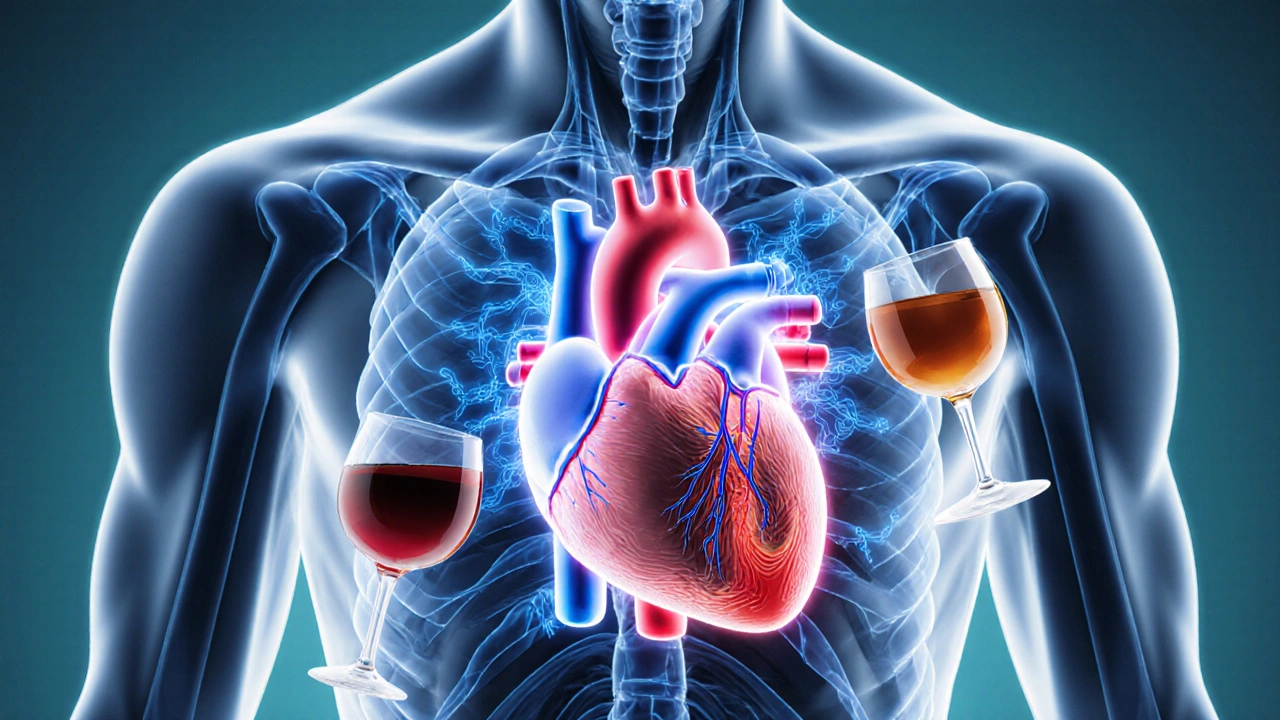Caffeine Arrhythmia: What It Is, How It Happens, and What to Do
When you feel your heart skip, flutter, or pound after your morning coffee, you might be dealing with caffeine arrhythmia, an irregular heartbeat triggered by caffeine intake. Also known as caffeine-induced palpitations, it’s not always dangerous—but it’s common enough that you should know when to pay attention. Caffeine is a stimulant that blocks adenosine, a chemical that helps your heart relax between beats. When adenosine is blocked, your heart can fire off extra signals, leading to premature beats or faster rhythms. This isn’t just in sensitive people—it can happen to anyone, especially if you’re drinking multiple cups a day or consuming energy drinks.
Not all arrhythmias are the same. palpitations, the sensation of a racing, fluttering, or pounding heart are often the first sign. They’re usually harmless if they come and go after caffeine wears off. But if you’re also dizzy, short of breath, or chest pain shows up, that’s a different story. People with existing heart conditions—like atrial fibrillation or prior heart attacks—are more likely to have caffeine trigger a real problem. Even healthy adults can develop issues if they’re sleep-deprived, stressed, or taking certain medications that interact with caffeine. Studies show that consuming more than 400 mg of caffeine daily (about 4 cups of coffee) increases the risk of arrhythmias in susceptible individuals.
Another key player here is arrhythmia triggers, factors that set off irregular heart rhythms. Caffeine is one, but it often teams up with alcohol, nicotine, lack of sleep, or even dehydration. Many people don’t realize that chocolate, energy gels, or even some medications (like decongestants) contain hidden caffeine. If you’ve been told you have occasional arrhythmias, tracking your caffeine intake for a week can reveal patterns you never noticed. Cutting back doesn’t always mean quitting coffee—it might mean switching to half-caf, avoiding afternoon drinks, or spacing out your intake.
What you’ll find in the posts below isn’t just theory—it’s real-world insight. You’ll see how people managed their heart rhythms after cutting caffeine, what doctors actually recommend when palpitations show up, and which medications or supplements might make caffeine’s effects worse. There’s no one-size-fits-all answer, but you’ll get clear, practical advice from people who’ve been there—and from experts who’ve studied the link between stimulants and heart rhythm.
How Alcohol and Caffeine Influence Your Heart Rhythm
Explore how alcohol and caffeine each affect heart rhythm, the risks of combining them, signs of arrhythmias, and practical tips for a healthy beat.
